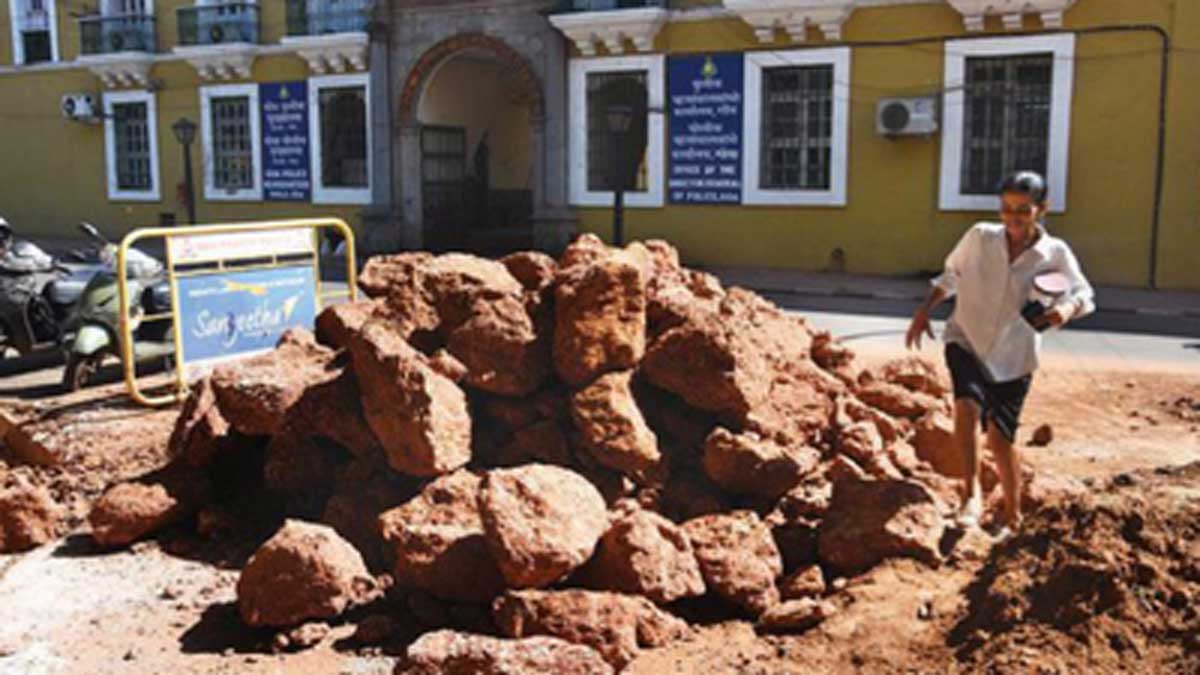The Panaji Smart City Mission, with a budget of over Rs 11 billion, has been plagued by financial irregularities, corporate misgovernance, exorbitant salaries, and a lack of accountability. As a result, the capital city has turned into a nightmare, characterised by trenches, pits, choked drains, and a web of questionable financial transactions over the past six years.
The mismanagement of the Imagine Panaji Smart City Development (IPSCDL) is evident from the appointment of numerous consultants to prepare the same project report. The latest addition to this list is Milind Ramani. Moreover, the former Managing Director and CEO of IPSCDL, Swayandipta Pal Chaudhuri, received a salary far exceeding the authorised amount. These instances exemplify the rampant misgovernance, mismanagement, and lack of financial transparency within IPSCDL.
Despite facing a strike-off notice from the Registrar of Companies (Goa) and criticism from the Comptroller and Auditor General (CAG) for paying exorbitant salaries, the authorities have shown disregard for accountability. Currently, IPSCDL is classified as non-compliant on the Ministry of Corporate Affairs website.
Various stakeholders, including councillors, urban planners, bureaucrats (both serving and retired), and residents, have called for an inquiry into the project selection process. However, their demands have been overshadowed by the ongoing construction activities associated with the Smart City Mission.
Government documents themselves indict IPSCDL, the company responsible for planning, appraising, approving, implementing, managing, and operating the Smart City Mission. The CAG's State Finances Audit Report, released in January, revealed that IPSCDL failed to submit accounts for the years 2017-18 to 2020-21. This is not the first time the CAG has raised concerns about IPSCDL, and it is not the only entity to do so.
In a previous audit covering the period between 2016 and 2019, the CAG questioned the appointment of Swayandipta Pal Chaudhuri, highlighting that he was paid a monthly salary of Rs 0.2 million despite the sanctioned amount being Rs 72,600. Furthermore, documents presented in the assembly on January 29, 2021, showed that Chaudhuri approved expenditures of Rs 393 million even after his contract had expired.
The functioning of IPSCDL has been so opaque that even the Ministry of Corporate Affairs (MCA) found non-compliance with rules and regulations. According to MCA records, IPSCDL held its last annual general meeting on September 30, 2020, and has failed to provide a statement of accounts since March 2020. Furthermore, the directors of IPSCDL, including former chief secretary Parimal Rai, IAS officers Tariq Thomas and Ajit Roy, and PWD principal chief engineer Uttam Parsekar, have been associated with non-compliance issues.
Former director for urban development Elvis Gomes asserts that corruption is evident in these circumstances. He highlights the lack of transparency, non-compliance with government regulations, concealed tender processes, and the execution of projects without proper planning. Gomes believes that an investigation would reveal significant kickbacks involved in the Smart City Mission.
Several promised projects, such as the public bicycle sharing project, comprehensive mobility plan, pedestrianisation of the core business area, parking master plan, universal smart card for the city, sewerage treatment plant for Ribandar, revitalisation of the St Inez creek, and streamlining of ferry services, have failed to materialise.
Despite paying Delhi-based firm Urban Mass Transit Company (UMTC) Rs 2.8 million to prepare the Comprehensive Mobility Plan and Parking Master Plan, the citizens of Panaji continue to face difficulties with public transport and parking facilities.
Former Panaji mayor Surendra Furtado questions the need for hiring consultants like Milind Ramani and paying them Rs 80 milion when three previous consultants were paid Rs 2.5 million each for the same project. Panaji MLA and revenue minister, Atanasio Monserrate, supports Furtado's claim and raises concerns about the high consultancy fees.
Furtado and Gomes have called upon the judiciary to intervene and investigate the Smart City Mission. Meanwhile, the Smart City Mission persists in flouting rules and regulations, leaving citizens to endure their ongoing misery with hopes for an end to their suffering.
Also Read
Coimbatore Smart City projects receive acclaim amongst top
Smart cities: Incubators for India's urban future - Union Minister





















